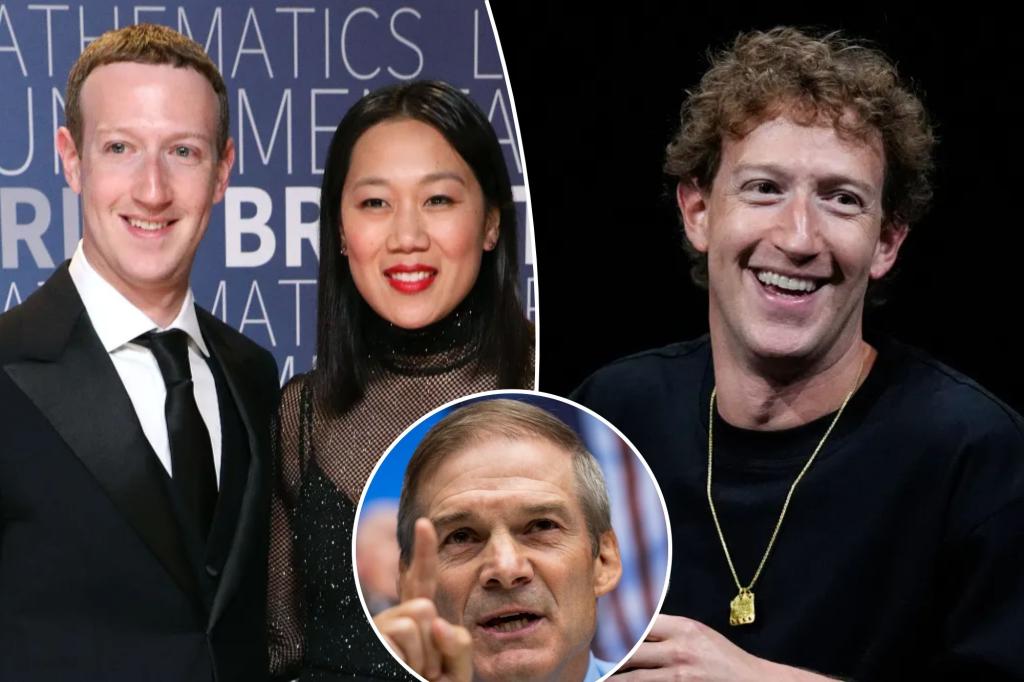Mark Zuckerberg, the CEO of Meta and a self-proclaimed data geek, claimed this week that he was not aware of the fact that the $400 million he spent on “getting out the vote” during the 2020 election may have benefited one political party over the other. The funds, often referred to as “Zuck Bucks,” were intended to finance fair local elections and were distributed to two left-wing organizations, the Center for Technology and Civic Life (CTCL) and the Center for Election Innovation and Research (CEIR). Republican sources have expressed skepticism about Zuckerberg’s claims of neutrality, questioning whether he truly did not realize the potential partisan implications of his contributions.
The Chan Zuckerberg Initiative, led by Zuckerberg’s wife Priscilla Chan, provided over $350 million to CTCL and CEIR under the guise of promoting voter turnout across all demographics. However, researchers have pointed out that administrators of these organizations have strong connections to the left, with ties to the New Organizing Institute, which has been described as “the Left’s New Death Star.” Analysis has shown that Zuck Bucks were disproportionately spent in Democratic-leaning counties in swing states like Georgia and Arizona, potentially influencing the outcome of the election.
Zuckerberg’s substantial financial contributions to these organizations have raised concerns about the level of influence wealthy individuals can have on the electoral process. The funding was directed towards initiatives that directly engaged with voters, such as phone calls and door-to-door visits, rather than traditional campaign ads. It has been noted that the funds were spent at a much higher rate in Democratic-leaning urban areas compared to Republican-leaning rural counties, potentially skewing voter turnout in favor of one party.
Despite the controversy surrounding his contributions, Zuckerberg acknowledged in a letter to House Judiciary Committee Chairman Rep. Jim Jordan that he did not plan on making similar contributions in the upcoming election cycle. This move was viewed by some as a preemptive effort to distance himself from potential legal repercussions, as former President Trump has accused Zuckerberg of undermining his campaign efforts in the past. The broader implications of Zuckerberg’s financial influence on the electoral process have sparked discussions about the need for greater transparency and regulation in private funding of election initiatives.
Critics of Zuckerberg’s contributions have pointed out that funneling money through Democratic-leaning organizations to influence voter turnout in specific regions is inherently partisan and may have consequences that extend beyond a single election cycle. The precedent set by Zuckerberg’s actions could potentially open the door for other wealthy individuals to replicate similar strategies in future elections. The lack of oversight and regulations regarding private funding of election initiatives has raised concerns about the integrity and fairness of the electoral process in the United States.
As the debate continues about the impact of Zuckerberg’s contributions on the 2020 election and the potential implications for future elections, questions remain about the role of wealthy individuals and organizations in shaping the electoral landscape. The controversy surrounding Zuck Bucks highlights the need for greater accountability and transparency in political funding to ensure that the electoral process remains fair and free from undue influence. Ultimately, the legacy of Zuckerberg’s financial involvement in the 2020 election may have lasting implications for the future of American democracy.


